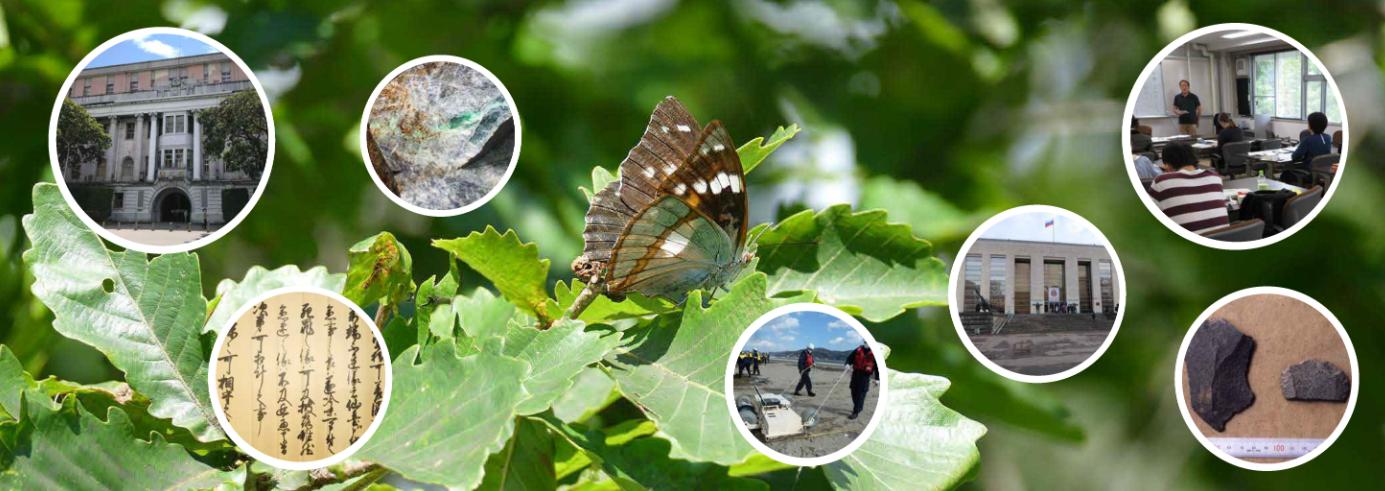东北亚研究中心成立于1996年。作为东北大学相对较新的实验室组织,文科学生和理科研究人员在分享对问题的认识的同时,进行了自己的区域研究。 其宗旨是全面了解日本以北的亚洲世界,即中国、朝鲜半岛、蒙古和俄罗斯。 其前身可追溯至1962年成立的文学部附属日本文化研究设施。
日本的许多区域研究机构都把所谓的外国大范围世界作为主要研究对象。 此外,日本在日本的研究试图以与亚洲和欧洲分开的方式理解日本。 另一方面,该中心的特点是,它以包括日本在内的形式进行区域研究。 简而言之,该中心通过东北亚的活力来看待日本,并从日本的活力中思考东北亚地区。
目前的情况是,跨学科研究,无论是人文学科、社会科学还是自然科学,都相当困难。 通过反复试验和错误,他们看到了他们可以挑战的跨学科方法的领域。 例如,从20世纪大国比较史、跨界环境污染和移民等人文社会科学问题,到北极气候变化、亚洲世界、人类寒冷环境适应和生物地质史等人文社会科学问题。 特别是,从人类历史角度进行区域研究,在日本是没有尝试的,这将开辟新的前景。 此外,作为一所经历过东日本大地震的大学,该研究所专注于灾害响应的应用实践区域研究。
该研究中心从2020年开始公开招聘外国研究人员。 目的是建立一个广泛的系统,使研究东北亚的外国研究人员能够生活在仙台,并坐下来进行国际联合研究。 公开招聘的成功取决于他们的组织如何受到海外研究人员的重视。研究人员希望该中心的国际基地职能将得到加强。
东北亚研究中心从北视的亚洲区域研究中提供日本社会和国际社会所需的亚洲理解,以发挥更大的作用,并努力深化研究,向全世界传播成果。

The Center for Northeast Asian Studies was established in 1996. As Northeastern's relatively new laboratory organization, liberal arts students and science researchers conduct their own area research while sharing their knowledge of the problem. Its purpose is to gain a comprehensive understanding of the Asian world north of Japan, namely China, the Korean Peninsula, Mongolia and Russia. Its predecessor can be traced back to the Japanese Cultural Studies Facility attached to the Faculty of Letters, which was established in 1962.
Many regional research institutes in Japan focus on the so-called foreign world. In addition, Japanese studies in Japan attempt to understand Japan in a way that is separate from Asia and Europe. On the other hand, the center is characterized by the fact that it conducts area studies in a form that includes Japan. In short, the center looks at Japan through the vitality of Northeast Asia and thinks about the Northeast Asian region from the vitality of Japan.
As things stand, interdisciplinary research, whether in the humanities, social sciences, or natural sciences, is quite difficult. Through trial and error, they see areas where they can challenge an interdisciplinary approach. For example, from the comparative history of great powers in the 20th century, transboundary environmental pollution and migration and other human and social science issues, to the Arctic climate change, the Asian world, human cold environment adaptation and biogeological history. In particular, regional studies from the perspective of human history have not been attempted in our country, and I believe that this will open up new prospects. In addition, as a university that has experienced the Great East Japan Earthquake, the Institute focuses on applied practice area research for disaster response.
The research center began to recruit foreign researchers in 2020. The aim is to create a broad system that enables foreign researchers studying Northeast Asia to live in Sendai and sit down for international joint research. The success of open recruitment depends on how their organization is valued by overseas researchers. The researchers hope that the center's international base function will be strengthened.
The Center for Northeast Asian Studies plays a greater role by providing the Asian understanding needed by Japanese society and the international community from Hokuga's Asian regional studies, and strives to deepen research and disseminate the results to the world.